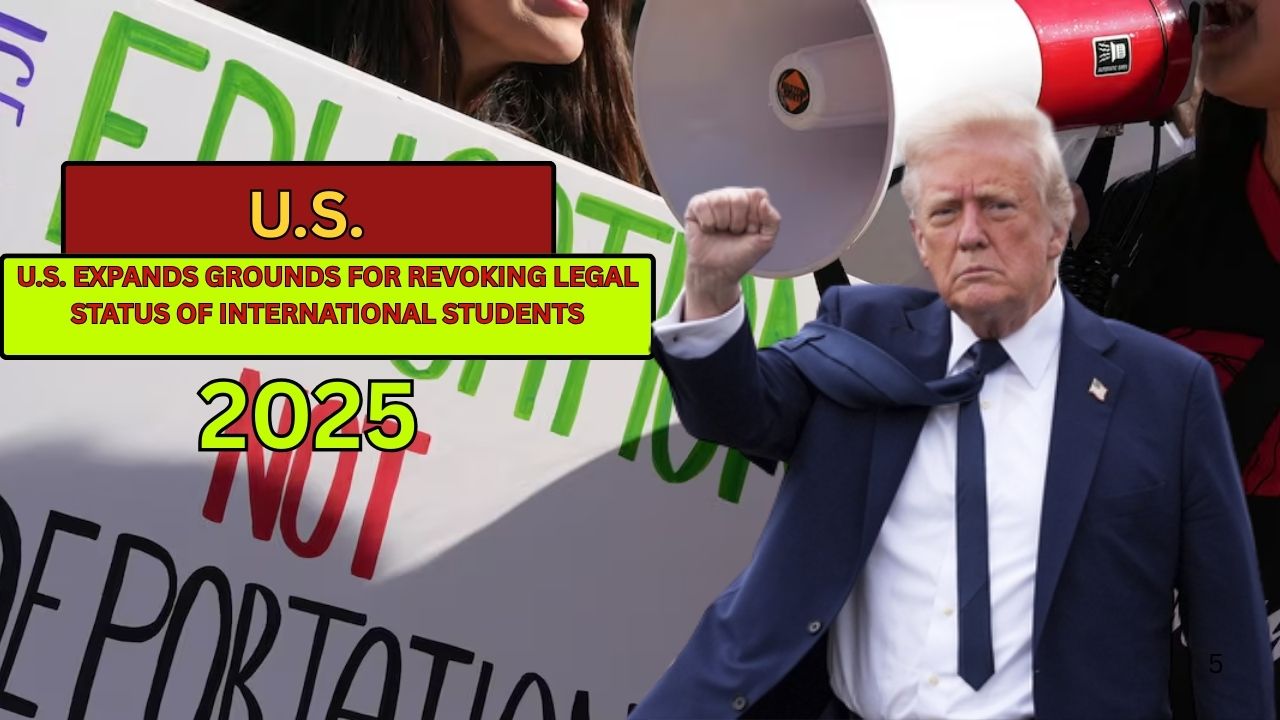WASHINGTON (AP) — The federal government has widened the reasons it can strip international students of their legal status in the U.S., escalating fears among thousands already affected by a Trump-era crackdown that has left many worried about deportation.
Immigration attorneys say the updated policy enables faster deportations and appears designed to justify actions the government took earlier this year to revoke foreign students’ study permissions.
After losing their legal status suddenly and with little explanation, students nationwide filed lawsuits in federal courts. In many instances, judges initially ruled that the government acted without following proper legal procedures.
In response, the government announced it would release new guidelines for canceling a student’s legal status. An Immigration and Customs Enforcement document filed in court on Monday stated that visa revocation is now considered a valid reason to terminate a student’s legal presence.
Previously, if a student’s visa was revoked, they could still stay in the U.S. to complete their studies. The revocation simply meant they couldn’t reenter the country if they left.
“This just gave them carte blanche to have the State Department revoke a visa and then deport those students, even if they’ve done nothing wrong,” said Brad Banias, an immigration lawyer representing one of the affected students. His client’s only offense was a traffic violation that showed up in a law enforcement database used by immigration officials.
Banias noted that this shift significantly expands ICE’s authority compared to earlier policies, where visa revocation alone was not enough to remove a student from the country.
In recent weeks, many foreign students discovered that their records had vanished from the student database maintained by ICE. Some students went into hiding, fearing deportation. Others quit school and returned to their home countries.
As more legal challenges emerged, federal officials said on Friday that international students’ legal statuses would be reinstated while a new framework was developed. That new policy surfaced in court filings just a few days later.
According to Charles Kuck, an Atlanta-based immigration attorney representing 133 international students, the updated guidance allows for status revocation if students appear in a criminal or fingerprint database—a change from earlier standards.
“Basically, they’re trying to cover what they already did bad by making the bad thing that they did now legal for them to do,” Kuck said.
Many students affected by the change had only minor infractions, like traffic tickets. Some weren’t told why they were targeted at all.
At a court hearing in Texas on Tuesday, Department of Homeland Security officials explained their reasoning in the case of Akshar Patel, a student studying information systems. Patel had his legal status revoked and later reinstated. He asked the court to block any attempt to deport him.
DHS said it had run the names of student visa holders through the FBI’s National Crime Information Center database, which includes records of arrests, suspects, and even individuals who were never charged or had their charges dropped.
Federal Judge Ana Reyes said the search identified about 6,400 students. Patel’s name appeared on a list of 734 students in a spreadsheet. That document was forwarded to a Homeland Security official, who replied within 24 hours: “Please terminate all in SEVIS,” referring to the student visa database.
Reyes criticized the speed of the process, saying it appeared no one had taken the time to review the records individually to determine why the students were listed.
“All of this could have been avoided if someone had taken a beat,” Reyes said. She added that the government had shown “an utter lack of concern for individuals who have come into this country.”
While Homeland Security stripped legal status, the State Department also revoked some students’ visas. Secretary of State Marco Rubio said some of the cancellations were due to students participating in pro-Palestinian protests, which he claimed were harmful to U.S. foreign policy. But he later admitted that some visas were revoked for unrelated reasons, including potential criminal activity.
“My standard: If we knew this information about them before we gave them a visa, would we have allowed them in?” Rubio said. “If the answer is no, then we revoke the visa.”
Rubio made it clear that, going forward, students must leave the U.S. if their visas are revoked. “Your visa is expired, your visa is revoked, you have to leave,” he said. “There is no right to a student visa.”
The crackdown caused confusion and disruption on college campuses. Typically, students’ legal status was updated after schools reported that a student was no longer enrolled. But this time, some schools told students to immediately stop attending classes or working and warned them of possible deportation.
Government lawyers argued that students hadn’t actually lost their legal status, even though some were marked as having failed to maintain it. They claimed the change was meant to serve as an “investigative red flag.”
Andre Watson from the Department of Homeland Security told the court that Patel “is lawfully present in the U.S.” and “is not subject to immediate detention or removal.”
Judge Reyes declined to grant a preliminary injunction but encouraged both legal teams to work toward a settlement to allow Patel to remain in the country.
This article has been carefully fact-checked by our editorial team to ensure accuracy and eliminate any misleading information. We are committed to maintaining the highest standards of integrity in our content.

Outside of work, he enjoys playing chess, following cricket, and writing short stories. His commitment to integrity and in-depth analysis strengthens OTE News’ mission of providing trustworthy journalism.




